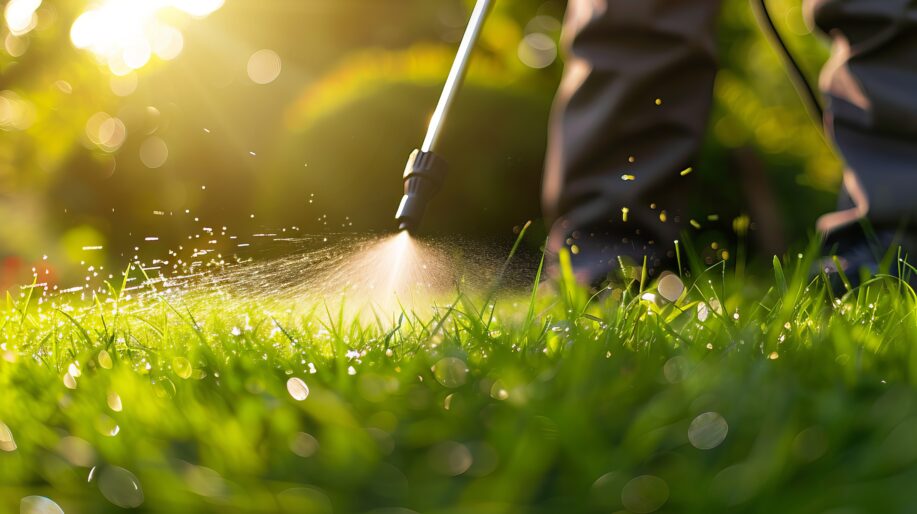Using pesticides for your lawncare

Groundskeeping requires a delicate balance between monitoring, maintenance, and action – and as the seasons change, new steps are required to achieve that balance. Maintaining a lawn with a professional aesthetic often means using pesticides to help control weed and pest populations.
The most common pesticides used in groundskeeping are insecticides, herbicides, and fungicides, and it is very important to read the labels to determine the best product for your issue. For example, you may have an insect infestation if you see signs of brown spots on your lawn, dead and dying grass, wilting, or even bite marks on the grass.
Herbicides are used to manage unwanted vegetation, like weeds, and the key to making the right choice is knowing the weed you want to get rid of, and the type of vegetation it’s surrounded by.
Fungicides treat more than just mushrooms, they help eradicate yeasts, mildews, moulds, and more by preventing growth of the fungi and their spores.
Best practices
Maintaining your lawn so that it looks great, stays healthy, and becomes less maintenance may involve the use of pesticides, but there are some best practices to keep in mind when you’re getting started:
- Regularly assess your lawn to quickly identify any issues that need addressing.
- Whenever possible, use non-chemical, preventative options instead of pesticides. Installing barriers mulch, using mechanical methods like raking or trimming, staying proactive with fertilizer, and planting natural deterrents are all ways that can help you avoid the use of pesticides.
- Use pesticides only when needed by spot-treating areas of concern wherever you can, rather than coating the whole area.
- Check the weather to avoid using pesticides before heavy rain to mitigate your environmental impact.
- Read labels and use pesticides accordingly. Check for recommended times of the year and effects on pollinators, and be aware of active ingredients during use.
- When using pesticides, ensure that PPE is being used to avoid damage to clothing or inhalation of harmful chemicals. Check the product instructions or SDS sheets for directions.
- Clean equipment regularly and check for leaks to avoid contamination or accidental use.
- Store pesticides and equipment in a safe space with original packaging. You may also want to store containers in larger containers to avoid leaks or exterior damage.
- Notify visitors and staff that you have applied pesticides on the property with clear signage.
Lawncare is an important part of groundskeeping, but knowing which pesticides to use and when to use them is a vital component of your outdoor maintenance program.
The post Using pesticides for your lawncare appeared first on REMINET.

